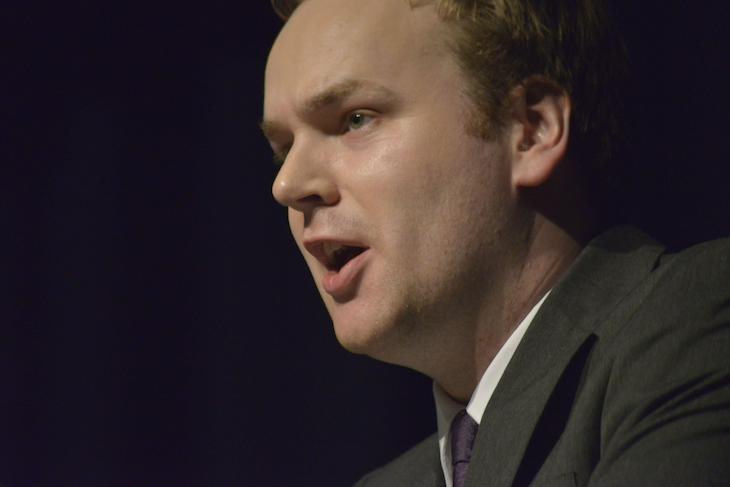Everyone makes mistakes, but they are seldom as monumental as William Wragg’s. The Tory MP has admitted handing over the phone numbers of colleagues to a man he met on Grindr, a gay dating app. The vice-chairman of the 1922 Committee said he offered up the details after sending intimate pictures of himself. Wragg deserves some credit for coming clean. ‘I was scared. I’m mortified,’ he has said. But there’s something troubling about the speed with which Wragg’s colleagues are defending him – and the insistence that he shouldn’t lose the Tory party whip.
Wragg must face up to the consequences
Anyone who has worked in Westminster will feel a shard of sympathy for Wragg. This scandal is the stuff of both personal and political nightmares, and it is easy to imagine how one could stupidly respond inappropriately to a message or approach of less-than-ironclad provenance. There is sometimes too little appreciation for the frailty of human nature among our politicians, especially when we retreat behind the rampart of social media and say things we would not dream of articulating to someone’s face.
Yet Wragg has seen a bewildering alliance of people ride to his defence. Not since I was a clerk on duty in the House of Commons division lobby have I put Jeremy Hunt, Sir Gerald Howarth and Anna Soubry in the same sentence, yet each has been supportive. The Chancellor said that Wragg had ‘given a courageous and fulsome apology’; Howarth, a former defence minister, admitted: ‘I feel sorry for Wragg’; while Soubry praised the way Wragg had ‘admitted his wrong doing and his remorse is genuine’.
Wragg is not a minister, nor has he ever been a member of the government. He is not a privy counsellor, and, while he has been diligent as chair of the House of Commons Public Administration and Constitutional Affairs Committee since 2020, he is not a man whose head is stuffed with the greatest secrets of state. However, he holds a position of responsibility. As well as being an MP and a committee chair, he is a vice-chairman of the 1922 Committee, the body of Conservative backbenchers which oversees leadership elections. Although he is only 36, and has not yet been an MP for nine years, he carries weight.
Wragg’s apology is a start, but he needs to take more responsibility than simply coming clean. When Hunt said, intending to be helpful, ‘This is something we are all having to face in our daily lives’, he was correct but amplified Wragg’s mistake. This kind of hostile cyber engagement is not a bolt from the blue against which there is no defence. The Commons’ authorities fall over themselves to provide advice and support to MPs on cyber security; it is a major concern of the Parliamentary Security Department, a bicameral office headed by Alison Giles, an experienced national security specialist from the Foreign Office.
The unpalatable truth is that Wragg made reckless, irresponsible, foolish and ultimately selfish mistakes which have had serious consequences for other MPs and people working in Parliament. Yes, he is a victim as well here. But Wragg should have known better and he acted wrongly. It was unwise of Hunt, as a senior member of the government, to leap so readily to Wragg’s defence.
By-elections cost something like £150,000, so there seems little point in Wragg standing down from Parliament, given he will be off soon anyway. However, he should step away from his select committee duties and his position on the 1922 Committee’s executive. The Tories should also suspend him while the whole sorry business is investigated by the police and others.
Even if we can understand why mistakes were made, we cannot shrug our shoulders and say they do not matter or that it could happen to anyone. It happened to Wragg, and it happened because of bad decisions he made. Wragg must now face up to the consequences.







Comments